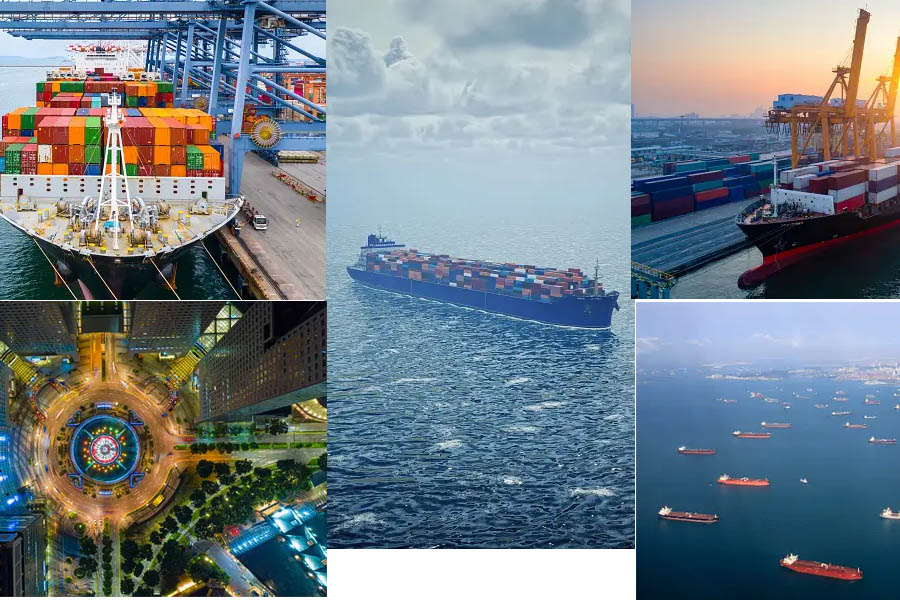
In a precarious turn of events, the international shipping community faces a new Suez crisis as Houthi militants, backed by Iran, unleash a barrage of drone and missile attacks on vessels navigating the Red Sea. The strategic waterway serves as the southern gateway to the Suez Canal, making it a vital conduit for global trade. The repercussions of these attacks extend far beyond the immediate threat to maritime security; they pose a serious risk to the delicate balance of the world economy.
The Scale of the Threat:
The Houthi campaign has targeted ships from over 35 countries, ostensibly in support of the Palestinians. These militants have fired more than 100 drones and missiles, a substantial arsenal supplied by Iran. This has raised alarms globally, given the vulnerability of ships when traversing narrow passages such as the Red Sea. The principle of freedom of navigation, already under threat in various maritime hotspots, faces a severe challenge that requires a resolute response from the international community.
Impact on Global Trade:
A staggering 20% of global container volumes, 10% of seaborne trade, and 8-10% of seaborne gas and oil rely on the Red Sea and Suez route. The mayhem caused by the attacks has forced four of the world's largest container-shipping firms to suspend voyages through this critical passage. Furthermore, energy giant BP has paused oil shipments. Although energy prices have remained relatively stable due to ample supply, container firms' share prices have surged as investors brace for a potential capacity squeeze. The cost to ship a container between Asia and Europe has spiked, hinting at an impending supply-chain crunch if the crisis remains unresolved.
The Naval Response:
In response to the escalating threat, the United States has announced a new 10-country task force to patrol the Red Sea, predominantly comprised of Western nations. This initiative aims to establish a robust international naval presence in the region, with Bahrain, Egypt, and Saudi Arabia discreetly providing support. The task force, currently playing a defensive role, contemplates options like providing armed escorts for merchant ships or establishing a safe corridor with an air-defense bubble against drones and missiles.
Diplomacy in the Face of Crisis:
Simultaneously, diplomatic efforts are underway, with Saudi Arabia on the brink of a deal to extend a ceasefire with the Houthis. Such an agreement could potentially end a devastating nine-year war in Yemen, incorporating commitments to halt naval attacks. Diplomacy, while a preferred route, remains precarious, and the international community must be prepared for a range of outcomes, including the possibility of the Houthis leveraging global trade for their objectives.
Economic Ramifications:
The crisis has already led to a suspension of services by major shipping companies, including Maersk, Hapag-Lloyd, cma cgm, and msc, collectively accounting for 53% of global container trade. The closure of the Suez route, if prolonged, threatens to increase trade costs as shipping is rerouted around Africa. Insurance premiums are expected to soar, and short-term supply-chain disruptions may occur, reminiscent of the 2021 Ever Given incident that blocked the canal for six days.
Military Escalation and Regional Dynamics:
The Houthi threat, with its origins in Iran's backing, poses a complex challenge. While diplomatic resolutions are explored, a military response seems inevitable. The multinational task force, led by the U.S. Navy, has struggled to contain Houthi attacks, prompting considerations of armed escorts for merchant shipping or direct strikes on Houthi depots and launchers. The geopolitical implications of this crisis extend beyond maritime security, intertwining with the ongoing regional tensions involving Iran, Israel, and other Middle Eastern powers.
As the Houthi attacks on Red Sea shipping persist, the world is on the brink of a new Suez crisis that imperils global trade. The international community, led by the United States and its allies, must navigate a complex landscape of diplomatic negotiations, military deterrence, and economic resilience to secure the free passage of ships and protect the delicate balance of the world economy. The stakes are high, and decisive actions are imperative to avert a prolonged disruption with far-reaching consequences.